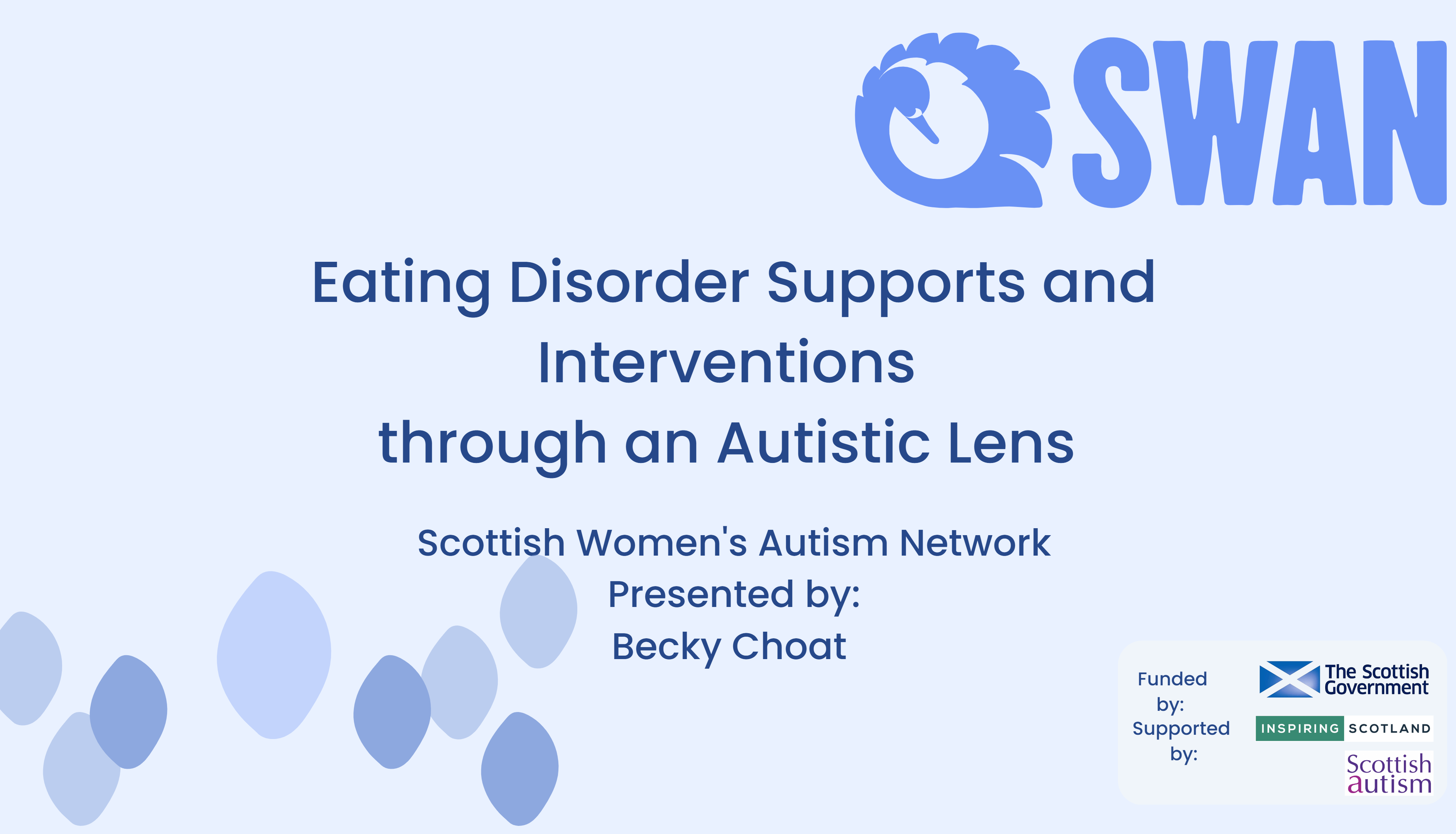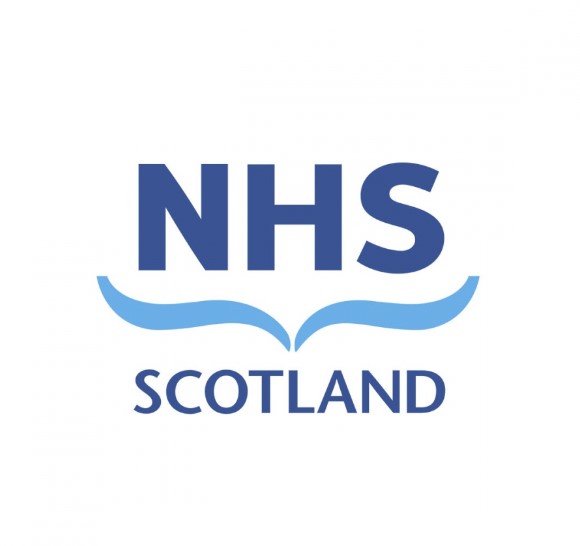"SWAN speaker was autistic and very knowledgeable. All of it was so helpful and relevant to our work; I have sat thinking about previous patients I wish I had this training for"
- CAMHS Tayside

- Around 89% of autistic children display some difficulties with eating
- An estimated 23-35% of adult patients with anorexia nervosa are also autistic and this is believed to be higher in CAMHS
- Evidence shows for autistic patients recovery is more complex and challenging, they tend to benefit less in treatment programmes, have significantly poorer outcomes, heightened presentation, and longer in-patient admissions.
- Added complexity for clinicians of many girls accessing CAMHS services for eating disorders who are undiagnosed autistic
The importance of understanding the relationship between autism and eating disorders is clear. Within the SWAN community we see the very real impact of eating disorders for autistic women, combined with issues accessing appropriate support and understanding, and in 2021 SWAN identified this area of work as a priority.
SWAN was invited to work with BEAT Scotland, CAMHS Lothian, CAMHS Grampian, CAMHS Tayside, CAMHS Orkney, CAMHS Shetland and CAMHS Highland to build on existing knowledge and understanding of eating disorders through an autistic lens. Over the last 2 years, this has involved delivering a multi-agency panel event, speaking at the 2022 BEAT Conference in Glasgow and leading autistic-led training and consultancy work for both outpatient and inpatient CAMHS services.
As with all of SWAN's training, the sessions built on and included the voices, experiences and learning of the SWAN community. We worked with services to explore practical adaptations to practice, reflect on clinical pathways, explore neuro-affirming therapeutic relationships and interventions, and develop understanding of autism beyond the diagnosis and what that means for the development, maintenance and recovery from eating disorders.
SWAN will be continuing this important work around autism and eating disorders this year and we are looking forward to working with adult services in Forth Valley and other 3rd sector organisations such as SupportED over the next few months.
"We commissioned training from SWAN for our team to be able to reflect on and adapt some of our clinical pathways and we wanted them to be informed by autistic individuals with lived experience.
SWAN, specifically Becky and Lyndsay, worked alongside us in developing the training making sure it was aligned with our needs and I was very impressed with how much background work was put in to make sure the training was pitched at the right level for a very specific clinical area. The delivery was professional and was highly valued by the whole team.
Despite high levels of existing knowledge about autism in our team, we would not have been able to get such a nuanced and detailed understanding of lived experience without SWAN's input for which I am very grateful and am looking forward to continuing to work with SWAN on future projects."
- Dr Fiona Duffy
Consultant Clinical Psychologist
CAMHS
1. Ledford, J. R., & Gast, D. L. (2006). Feeding problems in children with autism spectrum disorders a review. Focus on Autism and Other Developmental Disabilities, 21(3), 153-166 2. Westwood H, Tchanturia K. Autism spectrum disorder in anorexia nervosa: an updated literature review. Current psychiatry reports. 2017;19(7):41. 3. Tchanturia K, Smith K, Glennon D, Burhouse A. Towards an Improved Understanding of the Anorexia Nervosa and Autism Spectrum Comorbidity: PEACE Pathway Implementation. Frontiers in Psychiatry. 2020;11(640).
